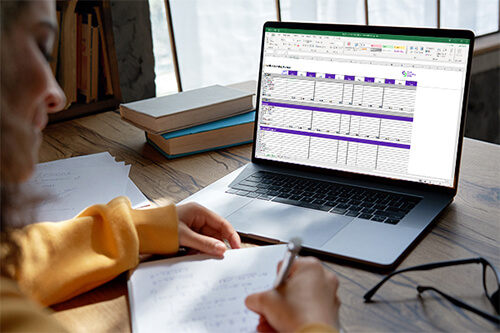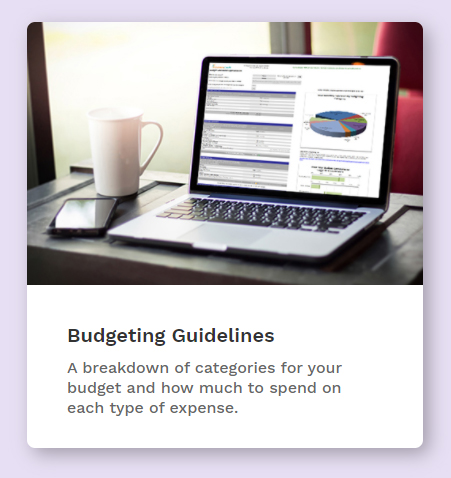Budget Planning for Kids & Teens Getting Their First Pay Cheques
by Julie Jaggernath

We get instructions with the simplest tools in life, but for something as important as a pay cheque or a credit card, we’re left to figure it out on our own. Even if your son or daughter is smart academically, there are things you can do to help them get ready financially for life on their own.
How Parents Can Help Kids Learn to Manage Money
Spending time helping your kids learn how to manage their money is an investment in their future. While it can be frustrating to see them make mistakes, learning from a $100 temporary lapse in judgement isn’t nearly as painful (for you and them!) as learning the hard way with a high-rate credit card or long-term car loan.
Here are some things you can do to teach your teen how to manage their pay cheques:
Learn How to Read a Pay Stub
Show them how to read a pay stub – many people don’t fully understand the difference between their net and gross income. Help them understand what the deductions get used for and that when they create a budget, they need to think about their net income, not their gross income.
Related article: Budgeting Guidelines for After-Tax Income
Set Reasonable Expectations that Allow for Spending
Discuss expectations with them and what they need to use their own money for. If you’re covering living costs, maybe they’re responsible for clothing, entertainment and cell phone expenses. When teens start paying for some of their own things, it can be amazing how much more careful they become!
Related article: How to Choose a Cell Phone Plan
Create a Teen Budget
Help your teen create a realistic budget based on what they need to spend their money on. Part of creating their budget means identifying how much to save for short term as well as medium-term expenses. Keep in mind that they might not set their budget up “your way,” so as long as it’s reasonable and suits their needs, it will be a great start.
Related article: Money Management Tips for Teens
Bank Accounts that They Control Are Vital
Teens need two of their own bank accounts – a chequing account for routine transactions and a savings account so that they can set money aside. Even if your name is on the accounts as a back up, they need to practice having control. As their savings grows, a portion of the funds can be moved into an investment account for larger goals and long term savings.
Set Goals and Save Money to Spend Later
Help them set goals for their savings so that they know what they’re working towards, can measure how they’re doing, and feel good about the result of all their hard work. Saving for retirement is unrealistic for a teen and will be completely de-motivating until they’re old enough to appreciate why that is important. Saving for an iPad or towards a car is something they can relate to and will want to work towards.
Track Spending
Encourage your teen to track their spending and make adjustments to their budget as they see what their habits are. This will help them to stay on track with their goals and reduce impulse spending. They could do this with a free app on their phone, a spreadsheet or even the “old fashioned” way – which has worked for years and years, using a pencil and paper.
Help Them Save Faster by Working Together
Consider matching a portion of what they save each year to help them build their savings faster. If they pay rent, set it aside to help them with moving expenses when they move out on their own one day. You may even want to set a joint savings goal that you can work on together.
Helping Teens Stay Motivated
Parents play many important roles, and motivating their kids to save and manage their money responsibly is an equally important one.






0 Comments